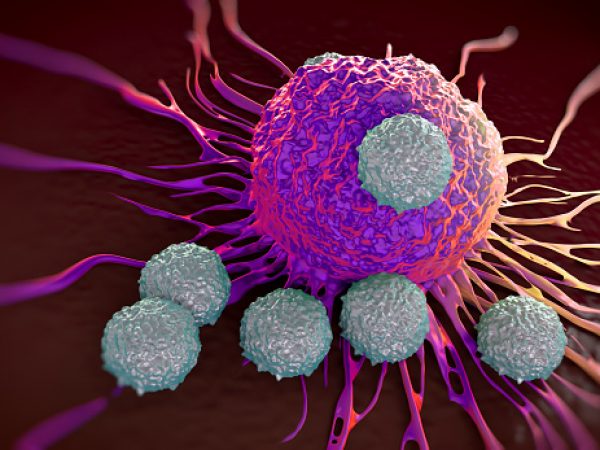Understanding Immunotherapy Side Effects
Treatment with checkpoint inhibitors is often billed as gentler than chemotherapy—and it is true that immunotherapy doesn’t come with the same acute side effects, such as hair loss, characteristic of many chemotherapy drugs. But checkpoint inhibitors are not without side effects.
In a story published in the summer 2018 issue of Cancer Today, digital editor Kate Yandell discusses what is known about checkpoint inhibitor side effects and how to spot and treat them.
Checkpoint inhibitors, when effective, spur patients’ own immune systems to attack their cancer cells. But checkpoint inhibitors can also lead the immune system to attack healthy cells.
Autoimmune reactions in the skin and gut are among the most common side effects, but patients can also experience immune-related adverse events affecting the musculoskeletal system, the lungs, the endocrine system, and other systems in the body. Recently, awareness of cardiac side effects has been rising. Heart problems related to checkpoint inhibitors are rare, but since they can prove fatal, cancer centers are increasingly monitoring for signs of these problems in patients starting checkpoint inhibitors.
Side effects can emerge anywhere from within the first month of treatment to long after treatment has ended. They are often treatable with steroids. But for immune-related side effects to be addressed, they must be correctly identified.
To raise awareness of side effects from immunotherapy in the larger medical community, organizations including the Society for Immunotherapy of Cancer, the American Society of Clinical Oncology (ASCO), and the National Comprehensive Cancer Network have come out with guidelines on identifying immunotherapy side effects and treating them.
Physicians are also trying to make sure patients are aware of when to talk to a medical professional about their symptoms. “The patient is the first line of defense,” Julie Brahmer, MD, a medical oncologist at the Johns Hopkins Kimmel Cancer Center in Baltimore who helped lead development of the ASCO guidelines, told Cancer Today. “It’s very important that they let us know if they have side effects. It’s our job to try to read through the symptoms to figure out, ‘Is this immune-related, cancer-related, or something completely different?’”
This story was excerpted from Cancer Today, a magazine for cancer patients, survivors and caregivers published by the American Association for Cancer Research. Read the full article here.



